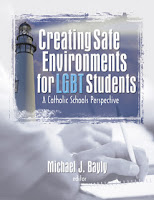
The “Tigress from Tiger Bay,” that is!
. . . Dame Shirley Bassey!
. . . Dame Shirley Bassey!
I’ve been really enjoying the latest album from the legendary Shirley Bassey. Yes, she’s still very much on the scene and sounding as majestically compelling as ever. “The Tigress,” indeed!
 Dame Shirley’s latest musical offering is (appropriately enough) entitled The Performance, and one of my favorite tracks from this wonderful album is “The Girl from Tiger Bay” (a reference to the area of Cardiff, Wales, were Bassey grew up). This particular track was written for (and about) her by the Manic Street Preachers. Below is this song accompanied by a well-put together YouTube video by 365Emmauel. It’s followed by a review of The Performance by Fiona Shepherd (with added links and pictures, plus a brief YouTube video on the making of the album). Enjoy!
Dame Shirley’s latest musical offering is (appropriately enough) entitled The Performance, and one of my favorite tracks from this wonderful album is “The Girl from Tiger Bay” (a reference to the area of Cardiff, Wales, were Bassey grew up). This particular track was written for (and about) her by the Manic Street Preachers. Below is this song accompanied by a well-put together YouTube video by 365Emmauel. It’s followed by a review of The Performance by Fiona Shepherd (with added links and pictures, plus a brief YouTube video on the making of the album). Enjoy!Underneath there is a beach.
It’s been a long time longing as history repeats.
Yes, many times I’ve wondered,
Why a part of me remains,
In place so full of beauty,
That somehow never changed.
I bought a ticket of a lifetime,
There’s no denying who I am.
Forever young I will stay The girl from Tiger Bay.
Time has me believing,
That there’s nothing left to prove.
I feel the love within me and love can’t be removed.
There’s a crack in every pavement,
Underneath there is a beach.
It’s been a long time longing as history repeats.
All the memories and the scars,
They dance away into the stars.
I bought a ticket of a lifetime,
There’s no denying who I am,
For ever young I will stay The girl from Tiger Bay.
Dame Shirley Bassey
A Review by Fiona Shepherd
The Scotsman
November 2, 2009
 It’s Dame Shirley Bassey these days, if you don’t mind – as if anyone needed reminding that we are in the presence of musical royalty. Elegant, commanding, playful, sophisticated, vulnerable – or, in the words of Manic Street Preachers’ frontman James Dean Bradfield, “this beautiful, glamorous singing beast” – Bassey is everything you could want from a diva and now she’s back to show yer Leonas how it should be done.
It’s Dame Shirley Bassey these days, if you don’t mind – as if anyone needed reminding that we are in the presence of musical royalty. Elegant, commanding, playful, sophisticated, vulnerable – or, in the words of Manic Street Preachers’ frontman James Dean Bradfield, “this beautiful, glamorous singing beast” – Bassey is everything you could want from a diva and now she’s back to show yer Leonas how it should be done.As was evident from her lauded appearance two years ago at the Glastonbury festival, she effortlessly musters the level of respect and regard afforded her fellow Welsh warbler Tom Jones, an old pro who just about manages to pull off the balancing act of moving with the times while remaining true to himself. Bassey, for her part, is about to show exactly how that is done on her first full studio album in more than 20 years. The Performance is dignified, heartfelt and timeless.
A good deal of the credit must go to Bond composer David Arnold in the role of producer. Given Bassey’s indelible association with the James Bond series – she is the only artist to have sung three Bond film themes – it must have taken all of five seconds to matchmake those two, and another ten to persuade John Barry and lyricist Don Black to compose a new song for their muse, the first they have written for her since “Diamonds Are Forever.” “Our Time Is Now” is a good, grown-up meditation on romance but it is far from the best this album has to offer.
More intriguing than the rekindling of old creative partnerships is the host of bright young things who have also queued up to write songs for Bassey. Some of the album’s contributors are no-brainers – the Pet Shop Boys, David McAlmont and Rufus Wainwright would probably have had diva strops of their own if they had not been invited to the party. Others, such as KT Tunstall and Kaiser Chiefs’ Nick Hodgson, are more unexpected choices, and some – we’re looking at Richard Hawley here – are downright inspired.
Most are understandably in thrall to the Bassey persona, writing songs to fit their conception of the veteran diva. And so Bassey comes out contemplative rather than shaking her stuff on opening number “Almost There,” written by Tom Baxter. You can see right away where he is going with the line “I'm not quite so young, I’m not quite so foolish in my defence,” but Bassey makes subtle work of its rather mournful tone before soaring on the big orchestral finish.
Her countrymen, the Manic Street Preachers, take the sentimental, pseudo-autobiographical route with “The Girl From Tiger Bay.” It’s a lovely song from a band who are more than capable of whipping up some heart-tugging romance when they have a mind to and, unlike other tracks, it is strong enough to retain something of the Manics’ stamp even as it is submitted to the traditional Bassey takeover.
Apparently, we have Rufus Wainwright to thank for the impetus of the album, and won’t he love that. His contribution, “Apartment,” was the first track to fall into place and he dares to take Bassey somewhere different. Despite the Latino arrangement, there is more than a hint of the European cabaret tradition about its protagonist's irreverent rejection of the fairytale lifestyle (“I’m running away from Cinderella, don’t want to go to Rapunzel’s hairdresser”) in favour of becoming a girl of independent means.
KT Tunstall also has fun with brassy Bassey without crossing over into kitsch on the bluesy strut of “Nice Men,” a good bad girl song on which Bassey demands to know “where have all the nice men, where have all the good men, where have all the bad men gone?”
Gary Barlow’s “This Time” is an old school Bacharachian ballad which is infinitely more dynamic than anything on the most recent Take That album, while Nick Hodgson’s classy composition “I Love You Now” also evokes old-school pop glamour without being a slavish pastiche of the sequined 1960s.
 Best of the lot is Bassey’s beautifully controlled rendering of the tremulous, melancholic “After The Rain,” written by Richard Hawley, who is on formidable form right now.
Best of the lot is Bassey’s beautifully controlled rendering of the tremulous, melancholic “After The Rain,” written by Richard Hawley, who is on formidable form right now.Compared to these gems, Arnold’s two contributions are a little Bassey-by-numbers. “No Good About Goodbye” boasts a great title but sounds like an inferior “Mad About The Boy,” while “As God Is My Witness” is just plain turgid. [Okay, I have to interject here and say I totally disagree with this assessment of this particular track. But, hey, you be the judge by clicking here.] An old-school performer like Bassey knows that you need to hold something back for the finale – and the Pet Shop Boys-penned “The Performance Of My Life” provides the quintessential grandstanding finish which will please those looking for some va-va-voom from the Dame. It is to the writers’ credit – and Bassey’s, and Arnold’s – that this performance, along with the rest of the album, is more about soul-baring integrity than retro camp.
– Fiona Shepherd
___________________________________
Okay, I can’t resist: here’s another track from The Performance. It’s the beautiful “Our Time Is Now,” a song I’d seriously consider having at my wedding! No, really! The lyrics are just perfect!
Your eyes don’t lie,
Look how bright the stars
And how close the moon.
Our time is now and evermore.
It took a while but a love
Like ours was worth waiting for.
Love has no season,
There are no rules.
Those who stop dreaming are fools.
So come with me
Because our time is now.
Our time is now . . .
Recommended Off-site Links:
Welsh Diva Thrives on New Material Written by Artists Half Her Age - Pete Paphides (The Times, October 30, 2009).
Shirley Bassey Packs Plenty of Vocal Wallop in The Performance - Adam Sweeting (The Telegraph, November 11, 2009).
Shirley Bassey: The Performance - A review by Peter Robinson (The Observer, October 30, 2009).
Dame Shirley Bassey’s Official Website
For more of Shirley Bassey at The Wild Reed, see:
• The Rhythm Divine
• The Living Tree
• History Repeating
Musical artists previously featured at The Wild Reed: Marty Rhone, Don Henley, Propeller Heads and Shirley Bassey, Stephen Gately, Nat King Cole, Enrique Iglesias, Helen Reddy, Australian Crawl, PJ and Duncan, Cass Elliot, The Church, Pet Shop Boys and Dusty Springfield, Wall of Voodoo, Stephen “Tin Tin” Duffy, Pink Floyd, Kate Ceberano, Judith Durham, Wendy Matthews, Buffy Sainte-Marie, 1927, Mavis Staples, Maxwell, Joan Baez, Dave Stewart & Friends, Tee Set, Darren Hayes, Suede, Wet, Wet, Wet, Engelbert Humperdinck, The Cruel Sea, Shirley Bassey, Loretta Lynn & Jack White, Maria Callas, Foo Fighters, Rosanne Cash, Jenny Morris, Scissor Sisters, Kate Bush, Rufus Wainwright, and Dusty Springfield.








































